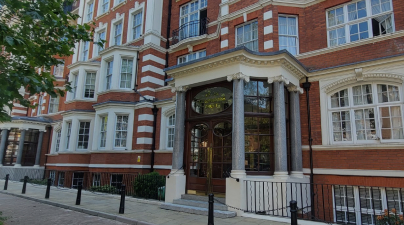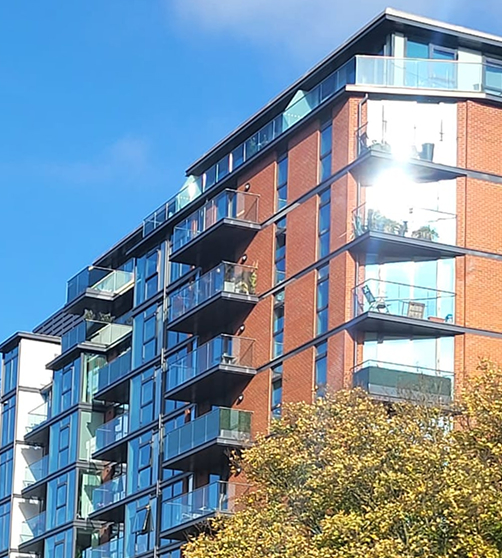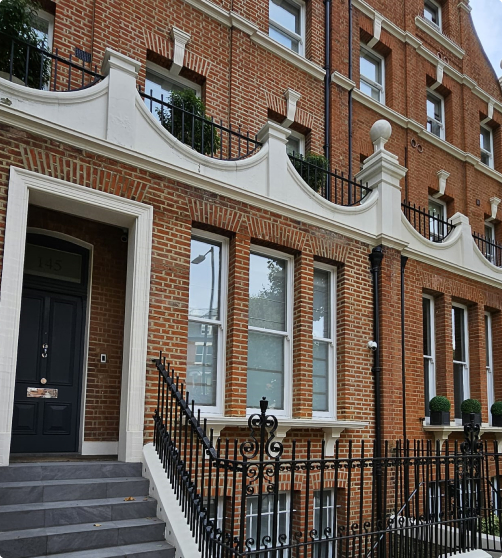We support both freeholders and leaseholders in both statutory 90 year lease extensions and non-statutory lease extensions with a modern ground rent
Lease Extensions
“We support both freeholders and leaseholders in both statutory 90 year lease extensions and non-statutory lease extensions with a modern ground rent”
It is hard to sell a lease with less than 80 years unexpired and many lenders restrict lending on such short leases. The shorter the lease the more expensive it will be to extend.
Please note that the House of Lords is currently reviewing the Government's draft Leasehold and Freehold Reform Bill which will (among other things) (i) remove the leaseholder liability for the freeholder's fees (ii) increase lease to 990 years from start date (instead of current extra 90 years) and (iii) amend the valuation method to make the premium cheaper for some leaseholders . It is anticipated that this will come into law later this year so it may make to wait for it to come into force. Please contact us if you have any questions
Lease Extensions
Did you know .....
If you want to buy a short lease flat the seller can serve notice to claim a lease extension leaving the buyer to take this forwards.
Step 1 - Do you qualify?
Step 2 - Obtain a valuation of the property
Step 3 - Serve Section 42 notice
Step 4 - What if the landlord does not agree to your lease extension?
Step 5 - Once the price has been agreed




As Solicitors, Ringley Law handle and case manage a broad range of litigation matters including everything involved with lease extensions, both at Court and at Tribunal. Ringley's Valuation team prepare the expert witness reports that will be required and for advocacy we have relationships with all the leading Barristers Chambers to best present your case.
It is hard to sell a lease with less than 80 years unexpired and many lenders restrict lending on such short leases. The shorter the lease the more expensive it will be to extend.
Please note that the House of Lords is currently reviewing the Government's draft Leasehold and Freehold Reform Bill which will (among other things) (i) remove the leaseholder liability for the freeholder's fees (ii) increase lease to 990 years from start date (instead of current extra 90 years) and (iii) amend the valuation method to make the premium cheaper for some leaseholders . It is anticipated that this will come into law later this year so it may make to wait for it to come into force. Please contact us if you have any questions
Lease Extensions
-
Step 1 - Do you qualify?
Check if you are entitled to extend your lease.
- Is your lease a residential ‘long lease’, ie, a lease which:
- was originally granted with the term of over 21 years; or
- is shorter than 21 years but contains a clause providing a right of perpetual renewal; or
- is terminable on death, marriage or an unknown date?
- Is the remaining term of your lease 5 years or more?
- Have you owned your flat for at least 2 years?
If your answer is yes to all 3 questions, you can extend your lease by an additional 90 years.
- Is your lease a residential ‘long lease’, ie, a lease which:
-
Step 2 – Obtain a valuation of the property
You initiate the purchase process by serving a ‘section 42 notice’ (see below) on the competent Landlord of the property. You have to state the premium price of the lease extension in the notice (which must be a justifiable amount). Therefore you should obtain a surveyors valuation before serving the notice.
-
Step 3 – Serve Section 42 notice
Once you have obtained the valuation, you will then serve ‘section 42 notice’ on the landlord, advising that you are instigating your right to a lease extension on near identical terms of your current lease. You may choose to negotiate your leasehold extension premium with the Landlord before serving the notice.Once you have served the notice:
- You can register this right with the Land Registry.
- You will have to pay the Landlord’s ‘reasonable’ professional costs.
The Landlord has at least two months to respond to the notice by serving a counter-notice. The Landlord may:
- Take no action and do not respond;
- Issue a Counter Notice accepting your stated premium price; or
- Issue a Counter Notice disputing your right to purchase or your stated purchase price.
What if the Landlord is missing?
If the Landlord is missing, you can apply to the court for a vesting order which will, in essence, place the obligations of the landlord in the hands of the court in respect of executing your lease extension. In satisfying the court to do this, you will need to take steps to trace the landlord before making such application, such as hiring a tracing agency. -
Step 4 – What if the landlord does not agree to your lease extension?
It is common for the freeholder to wish to have their own valuation on the property which, by law, they are at liberty to do. They subsequently serve a counter notice with a different amount proposed for the premium. In such a case the Surveyors will then enter a negotiation stage. If a compromise cannot be reached, you are at liberty to apply to have the First Tier Tribunal (Property Chamber) make the determination for you.
Apart from price, other such challenges may include:
- An error in the section 42 notice;
- That you do not meet other legal requirements;
If the landlord does not agree to your lease extension on an amicable basis, you can apply to the First Tier Tribunal (Property Chamber) (formerly known in England as the Leasehold Valuation Tribunal LVT).
-
Step 5 – Once the price has been agreed
a completion statement will be delivered. As mentioned above this will take into account the landlord’s reasonable legal and surveyor costs in the statutory process which by law is payable by you. If agreed the conveyancing process can be concluded in the drafting of deeds and with the transfer of fund. Finally you are then able to register your new lease extension with the Land Registry.
As Solicitors, Ringley Law handle and case manage a broad range of litigation matters including everything involved with lease extensions, both at Court and at Tribunal. Ringley's Valuation team prepare the expert witness reports that will be required and for advocacy we have relationships with all the leading Barristers Chambers to best present your case.
Did you know .....
if you want to buy a short lease flat the seller can serve notice to claim a lease extension leaving the buyer to take this forwards.

Why not talk to one of our Solicitors today
0207 428 1977
Email Us



















